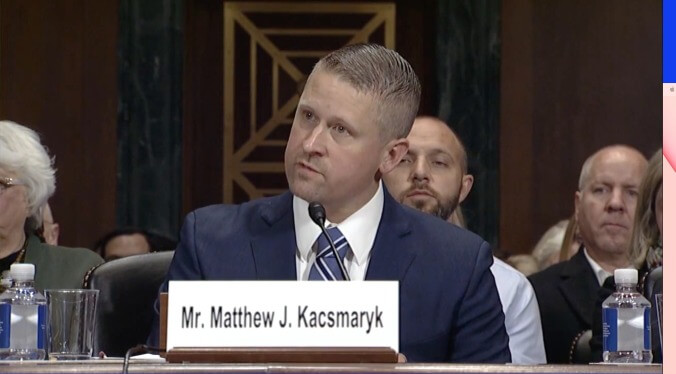Notorious Texas Judge Brings Abortion Pill Lawsuit Back From the Dead
Instead of dismissing the case, Judge Matthew Kacsmaryk said three states with no connection to Texas can sue the FDA to try to reimpose restrictions on mifepristone.
Screenshot: YouTube AbortionPolitics
In June, we told you that, despite a unanimous Supreme Court ruling, the lawsuit threatening access to the abortion pill nationwide was not actually over yet. It has now officially been resuscitated.
The case was originally filed in November 2022 by a coalition of anti-abortion doctors called the Alliance for Hippocratic Medicine. They challenged mifepristone, a drug used for abortions and miscarriages, by saying that the Food and Drug Administration was wrong to approve the drug and claimed it had injured them by requiring them to treat patients who experience rare complications from the pills, preventing them from helping to bring new life into the world. The Justices ultimately ruled that they weren’t harmed by the drug’s approval in 2000 and thereby couldn’t sue the FDA to try to reimpose outdated restrictions. But another set of plaintiffs was waiting in the wings, and a Texas judge said on Thursday that they could keep the case alive.
Trump-appointed Judge Matthew Kacsmaryk ruled on Thursday that Republican Attorneys General from Idaho, Kansas, and Missouri could continue the litigation in his Amarillo, Texas, courtroom. They have no connection to Texas and seemingly intervened to try to keep the case going in case the Supreme Court ruled against the plaintiffs. (We must also note that voters in Missouri and Kansas supported the pro-choice position in statewide abortion amendments.) The Biden administration Department of Justice argued in November that longstanding legal precedent says the entire case should be dismissed because the original plaintiffs lack standing and Kacsmaryk just ignored that.
The three states are asking for Kacsmaryk to issue an injunction that: ends telemedicine prescriptions of the drug, reverts to three in-person appointments, rolls back approval from 10 weeks of pregnancy to seven, prohibits nurse practitioners from prescribing the pills, withdraws approval for use by minors, and withdraws the 2019 approval of generic mifepristone. (They filed this complaint in October and then re-filed it on Thursday.)
Nearly two-thirds of all reported abortions in 2023 were done with abortion pills, and the requested changes would make the pills much, much harder to get.
“Once the Supreme Court found that the anti-abortion groups who brought the Alliance litigation never had a right to sue in the first place, this outrageous case should have been put to bed,” Julia Kaye, senior staff attorney with the ACLU of Reproductive Freedom Project said in a statement. “Instead, the same Texas judge who already tried to take mifepristone off the market nationwide has left the door open for extremist politicians to continue attacking medication abortion in his courtroom.”
-

-

-

-

-

-

-

-

-

-

-

-

-

-

-

-

-

-

-

-

-

-

-

-

-

-

-

-

-

-

-

-

-

-

-

-

-

-

-

-








































